
June 11, 2024
Majority of Americans Worry about Made-Up News in 2024 U.S. Presidential Contest
Many Already Report Encountering Fake Election News
Written by: Jessica Theodule, Research Manager of Strategic Insights, Project Liberty Institute
Jeb Bell, Head of Research and Strategic Insights, Project Liberty Institute
Ahead of November’s Presidential vote, a clear majority of Americans say made-up news and information pose a serious problem for the 2024 election. For many, this view is shaped by personal experience: fully half of Americans report already encountering news about politics or the election that they suspect was fake or incorrect.
Worried about the veracity of information they encounter, many Americans are checking the facts themselves – most often by consulting additional news sources or conducting web searches. Individuals who rely on social media for political news are the most likely to consult secondary sources to verify information they encounter.
Despite a substantial share of Americans conducting their own fact-checks, the prevailing view is that media outlets and journalists should bear the chief responsibility for ensuring that news and information they report is accurate. Relatively few say the burden of truth should be borne by either social media companies or the government.
These are among the key insights from a nationally representative survey of 1,000 Americans ages 18 and above, conducted in collaboration with Ipsos U.S. Public Affairs between March 2 and 3, 2024.
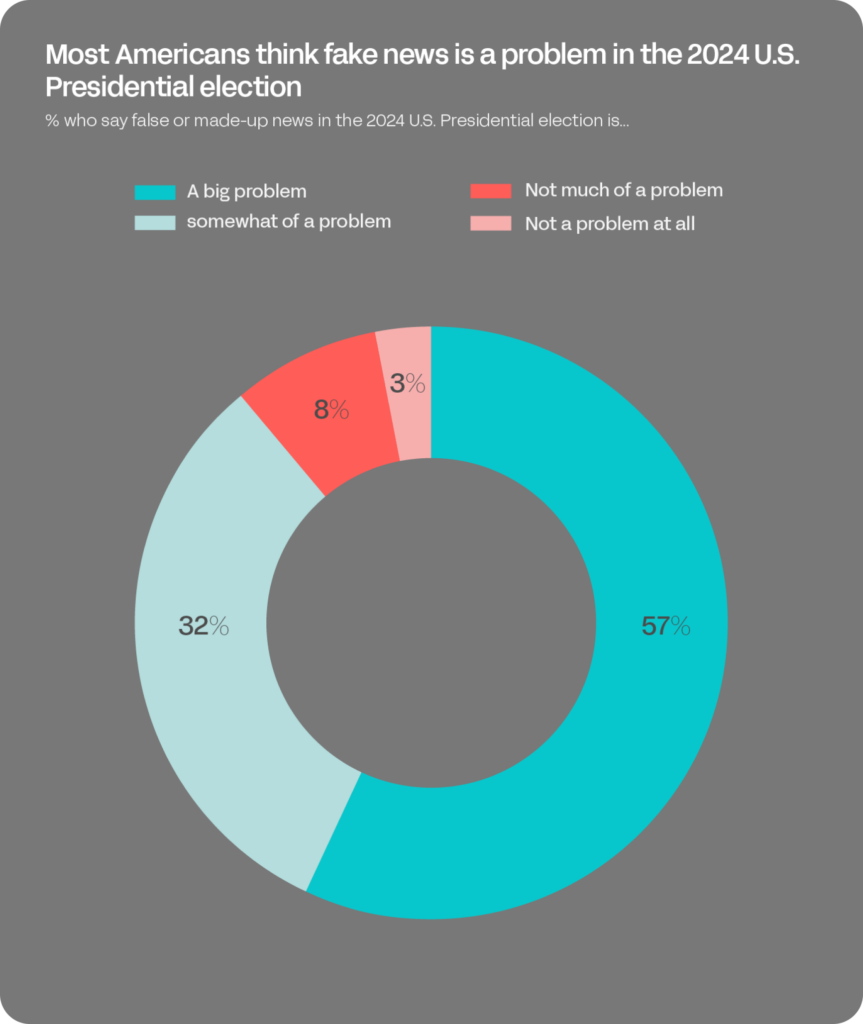
Widespread concern about fake election news
An overwhelming majority (89%) of Americans describe false or made-up news as a problem in the 2024 U.S. Presidential election, with 57% saying it is “a big problem.”
Worries about fake news are not simply a reaction to second-hand reports by the media. Fully half (50%) of American adults say that over the past year they have personally encountered election news they suspect was false or made-up. Nearly a third (32%) of Americans separately report encountering news they initially believed to be true but later discovered was false. One-in-four (25%) say they have had the inverse experience: finding out after-the-fact that news they originally considered false or incorrect was actually true.
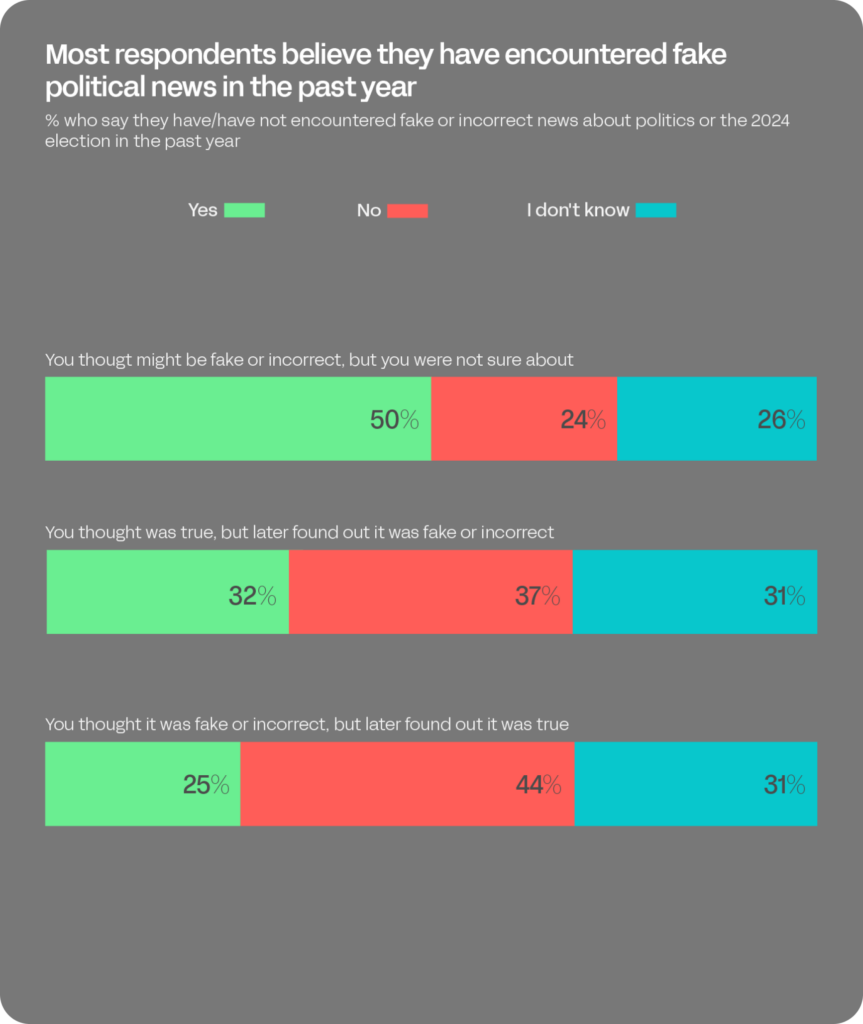
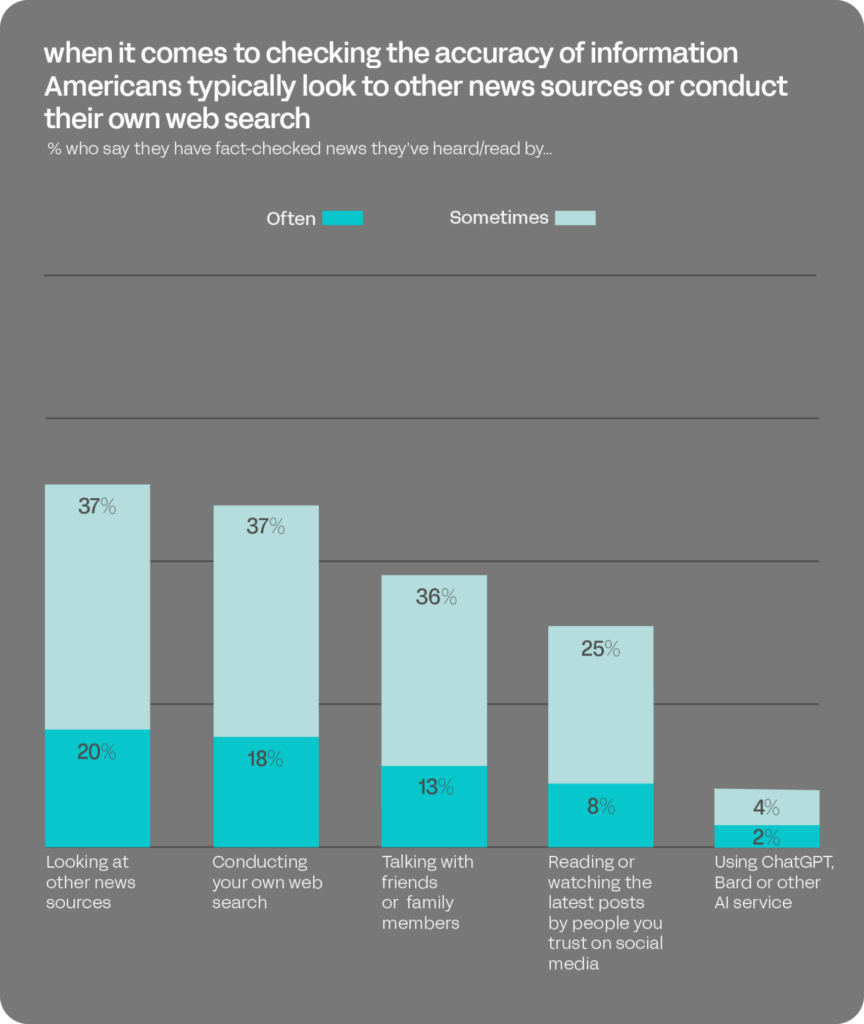
Many Americans Check the Facts
Many American adults report taking at least some steps to verify news and information about the 2024 U.S. Presidential election. Roughly, equal majorities say they often or sometimes look at other news sources (57%) or conduct their own web searches (56%). Just under half (48%) say they check the facts by consulting with friends and family. About a third (34%) rely on social media influencers for guidance. Just 6% say they employ generative AI services, such as ChatGPT, Bard or others to check the facts.
Among those who get their news about the 2024 U.S. Presidential election from social media, personal fact-checking is particularly widespread. For example, Americans who ‘often’ or ‘sometimes’ get their political news from social media are 25 percentage points more likely than respondents, overall, to conduct web searches to verify information they encounter (82% vs. 57%) and 20 points more likely to look at other news sources (75% vs. 55%). Even more starkly, Americans who get their news from social media are twice as likely as the overall population to consult friends and family to determine if the information they encounter is true (66% vs. 33%).
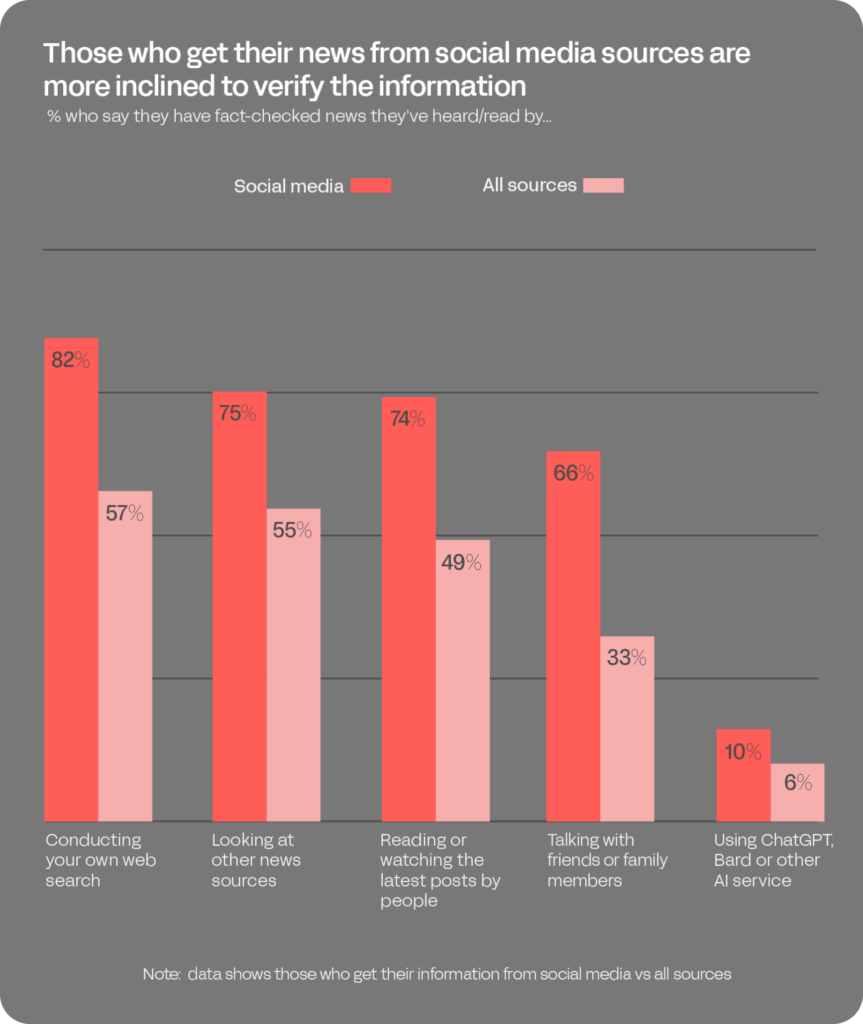
Most lay burden of truth at feet of media, journalists
When asked who should be primarily responsible for reducing the amount of fake or made-up news about candidates and elections in 2024, the prevailing answer (44%) is news outlets and journalists. The next most frequent response is individuals who consume or spread fake news (29%).
There is general reluctance for government regulation in this area, with only 1-in-10 Americans believing that the state should bear primary responsibility for reducing the amount of false or inaccurate information. A similarly modest share (12%) say the primary responsibility should be borne by social media companies.
Republicans, more than Democrats or Independents, believe the burden of truth should be laid at the feet of news outlets and journalists (55% vs 43% and 41%, respectively). Reluctance towards government regulation is fairly consistent across the political spectrum, with roughly 1-in-10 among each group believing that the government should be primarily accountable.
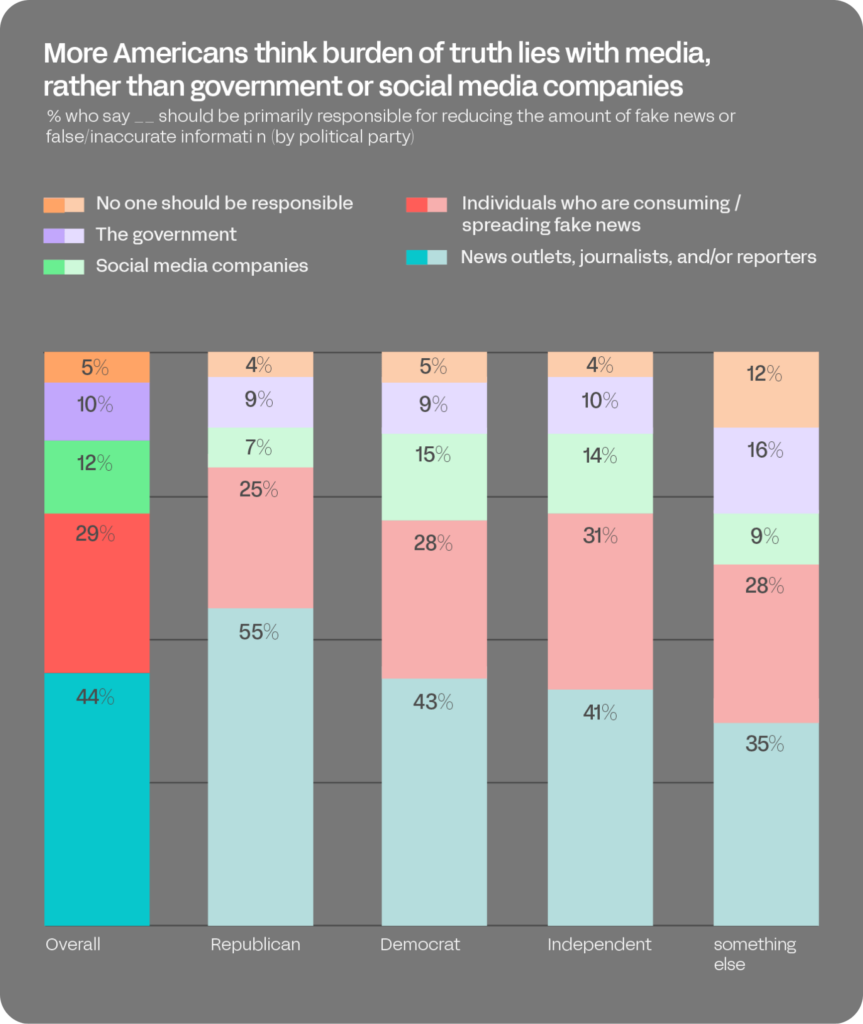
Methodology
This Ipsos poll was conducted March 1-3 2024, by Ipsos for Project Liberty using the probability-based KnowledgePanel®. This poll is based on a representative probability sample of 1,020 general population adults age 18 or older in the United States.
The margin of sampling error for this study is plus or minus 3.3 percentage points at the 95% confidence level, for results based on the entire sample of adults. The margin of sampling error takes into account the design effect, which was 1.16. The margin of sampling error is higher and varies for results based on other sub-samples. In our reporting of the findings, percentage points are rounded off to the nearest whole number. As a result, percentages in a given table column may total slightly higher or lower than 100%. In questions that permit multiple responses, columns may total substantially more than 100%, depending on the number of different responses offered by each respondent.
The survey was conducted using KnowledgePanel, the largest and most well-established online probability-based panel that is representative of the adult U.S. population.
The data for the total sample were weighted to adjust for gender by age, race/ethnicity, Census region, education, household income, metropolitan status, and political party identification. The demographic benchmarks came from the 2023 March Supplement of the Current Population Survey (CPS). Political Party Benchmarks came from high quality telephone polling.